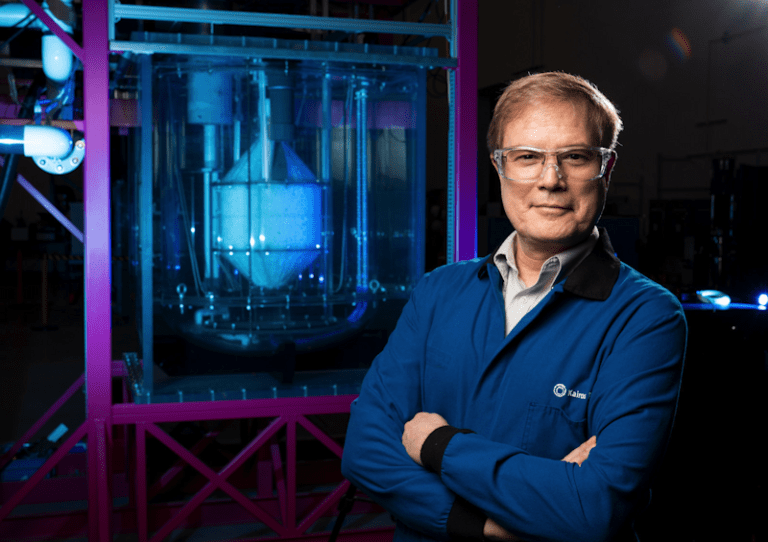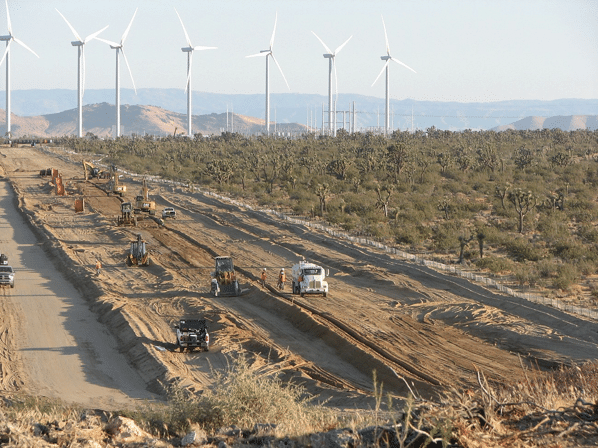Atomic Show #227 – Carmen Bigles, Coqui Radiopharmaceuticals

Coqui Radiopharmaceuticals is a start-up company founded in 2009 with a laser focus on solving a problem affecting the health of tens of thousands of people. The founder, Carmen Bigles, noticed that many of the patients arriving at her clinic had not been properly diagnosed and discovered that the reason for that condition was an insufficient supply of molybdenum-99 to provide technetium-99 for diagnostic nuclear medicine. She recognized that the problem was a solvable one and believed that she had the experience and ability to build a team capable of producing a long term solution.
Ms. Bigles determined that there were proven solutions available, and recognized that the already existing shortage of Mo-99 could not be reliably and promptly solved by starting up a research and development project using novel, unproven ideas.
Her approach to problem solving in this case was to adopt the same solution that had worked for others and to determine the straightest path towards implementing that solution here in the United States.
The path she and her team have chosen is not without risk, but much of the risk in the project comes from regulatory uncertainty and the financial uncertainty that is inherent in a boutique market that has, up until now, been dominated by government-owned, multipurpose facilities that can often afford to sell product at a price that cannot be matched by a private industry.
The perceived regulatory risk can be illustrated with a quote from an article in the November 2014 issue of Nuclear News titled “The Campaign to Resume Domestic Production of Molybdenum.”
Taking on what may be the biggest regulatory challenge is Coqui Pharmaceuticals, a Puerto Rico-based venture that would not only produce reactor-based fission product Mo-99, but would do so in reactors that do not yet exist, and therefore must be permitted and licensed through the NRC.
(Nuclear News, Nov 2014, pg 41)
Despite the doubters, Coqui Radiopharmaceuticals has developed what appears to be a very workable plan, built a strong team, and has engaged consistently with the Nuclear Regulatory Commission.
Just before Ms. Bigles and I spoke, I received a copy of the following press release indicating the achievement of one more milestone on a lengthy, but rewarding journey.
FOR IMMEDIATE RELEASE CONTACT:
Ashley Torres – atorres@krepspr.com
Laura Stace – lstace@krepspr.com
305.663.3543
COQUÍ RADIOPHARMACEUTICALS INKS DEAL WITH INVAP
Nuclear Engineering Firm Chosen as Designer and General Contractor for Florida
Medical Isotope Production Facility
Coral Gables, Fla. (Nov. 20, 2014) — Coquí RadioPharmaceuticals Corp., a medical isotope company working to become the first U.S. commercial producer of Molybdenum-99 (Mo-99), is proud to announce it has formally signed a contract with INVAP to design its Medical Isotope Production Facility (MIPF) in Alachua, Fla. Mo-99 is the parent isotope of Technetium-99, which is used in 80 percent of nuclear medicine procedures worldwide. In 2012, Congress passed legislation making it a national priority to produce Mo-99, an isotope necessary to detect a wide range of diseases, including cardiovascular disease and cancer.
Argentine nuclear engineering firm INVAP has been involved in nuclear development for more than 30 years. During that time it has worked on more than 15 nuclear reactors and related facilities across the world, including several reactors used to produce medical isotopes. Among these is the OPAL reactor in Australia, the ETRR-2 reactor in Egypt, and the NUR reactor in Algeria. Coquí Pharma’s MIPF will use an open pool reactor technology similar to that employed in the INVAP-designed OPAL facility in Australia.
“The signing of this contract cements a key step in implementing proven technology to produce Mo-99 for patients requiring lifesaving medical diagnostics,” said Carmen I. Bigles, Coquí Pharma President and CEO. “Today, Coquí Pharma together with INVAP has built a bridge between the U.S. and Argentina, uniting our efforts to ensure the availability and reliability of the most essential radioisotope in nuclear medicine and with the added benefit of making the world a safer place for generations to come by utilizing proven non-proliferation, low-enriched uranium technologies.”
Coquí Pharma is preparing its construction permit application for submission to the U.S. Nuclear Regulatory Commission. Coquí Pharma will utilize existing commercially proven technology with tested designs to license and build a facility that has the capability of reliably supplying a large portion of the U.S. market and international needs.
Due to recent and future projected shortages, the issue of U.S. domestic medical isotope production has been discussed at great length within the industry and U.S. federal government. Coquí Pharma reviewed options available to manufacture Mo-99 and determined that only the INVAP process provides a real, tangible and reliable solution to solve the medical isotope crisis.
# # #
Coquí RadioPharmaceuticals Corp.
Coquí RadioPharmaceuticals Corp. is a medical isotope company, dedicated to the production of Molybdenum-99, which is used in 20 million procedures each year in the U.S. The Puerto Rican company is based in Coral Gables with the mission to bring the foremost medical isotope production facility in the Western Hemisphere to Alachua, Florida, and to create a commercially scalable, reliable supply of medical diagnostic and therapeutic radioisotopes in the U.S. For more information on Coquí RadioPharmaceuticals, visit www.coquipharma.com.
Podcast: Play in new window | Download (Duration: 29:57 — 13.8MB)
Subscribe: RSS




Where will the production facility be located?
Alachua, FL. Here is a link to a blog post about the plans – http://sebio.org/2014/08/coqui-pharma-to-build-facility-in-alachua-fl/
We Australian advocates are obviously proud of our research reactor. I’m looking forward to seeing the supply of this crucial “workhorse isotope” (great term!) increase in an unfolding environment of healthy competition as our own output is set to ramp up substantially.
@Oscar Archer
Due to the lengthy trip required by even the fastest airliners between your home and mine, I see little competition between us in Mo-99/Tc-99.
The material has such a short half-life that production facilities on opposite sides of the globe suffer too much decay during the transit time to directly compete with each other.
I see far more opportunity for cooperation vice competition in this case.
Even better!
I’m not sure that ANSTO (the owners of the OPAL reactor in Australia) wouldn’t see this as competition. Today they put out a news release highlighting the Mo-99 that gets shipped from Australia to the USA, and ANSTO would love to increase exports in the future. Given how quickly the global market for radiopharmaceuticals is growing I think that there is plenty of space for many suppliers around the world though.
This looks like a great excuse to develop ballistic cargo rockets. 🙂
The stuff that’s being done in amateur high power rocketry is astounding at times.
It is a very exciting project. I hope it works out well for them. It will certainly be wonderful for the community.
This is indeed an exciting project and clearly has a high probability of success from a technical perspective as it is based upon existing proven technology. My understanding is that the project is based upon the construction of 2 reactors and a processing facility which is an excellent strategy from a security of supply perspective but my guess is that it will be extremely costly and construction time will be long (>5yrs).
As a matter of interest Mo-99 from NTP in South Africa, IRE in Belgium and Ansto in Australia is shipped to the USA on a weekly basis and during the annual Canadian NRU outage a significant portion of the USA demand is supplied by these 3 companies.